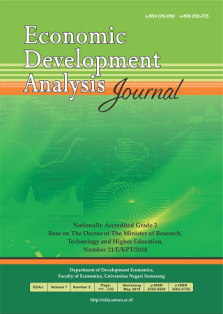The Economic and Social Impacts of Rural Placemaking
Abstract
Urbanization does not only affect land use in urban areas but also in rural areas. Many lands in rural areas are vacant. Although placemaking is often associated with urban contexts, its role in rural areas has emerged. Placemaking is believed to improve the economic and social aspect of vacant land uses. This study aims to analyze the process and impacts of rural placemaking in transforming vacant land into an attractive public area with a case study in Pasar Papringan, Ngadimulyo Village. This study was conducted by qualitative approach through in-depth interviews with six respondents and by quantitative approach through distributing questionnaires to a total of 61 respondents. The results show that rural placemaking not only activates vacant land, but also improves economic and social capitals. The perception regarding the economic impacts revealed that most respondents agreed that placemaking had the highest impact on innovation and the creative economy, particularly in supporting the creative economy (30 respondents, 49%). While the perception regarding the social impacts revealed that placemaking had the highest impact on their well-being, such as healthy lifestyle (41 respondents, 67%). The results of this study are expected to provide recommendations for vacant land management through rural placemaking practices.


